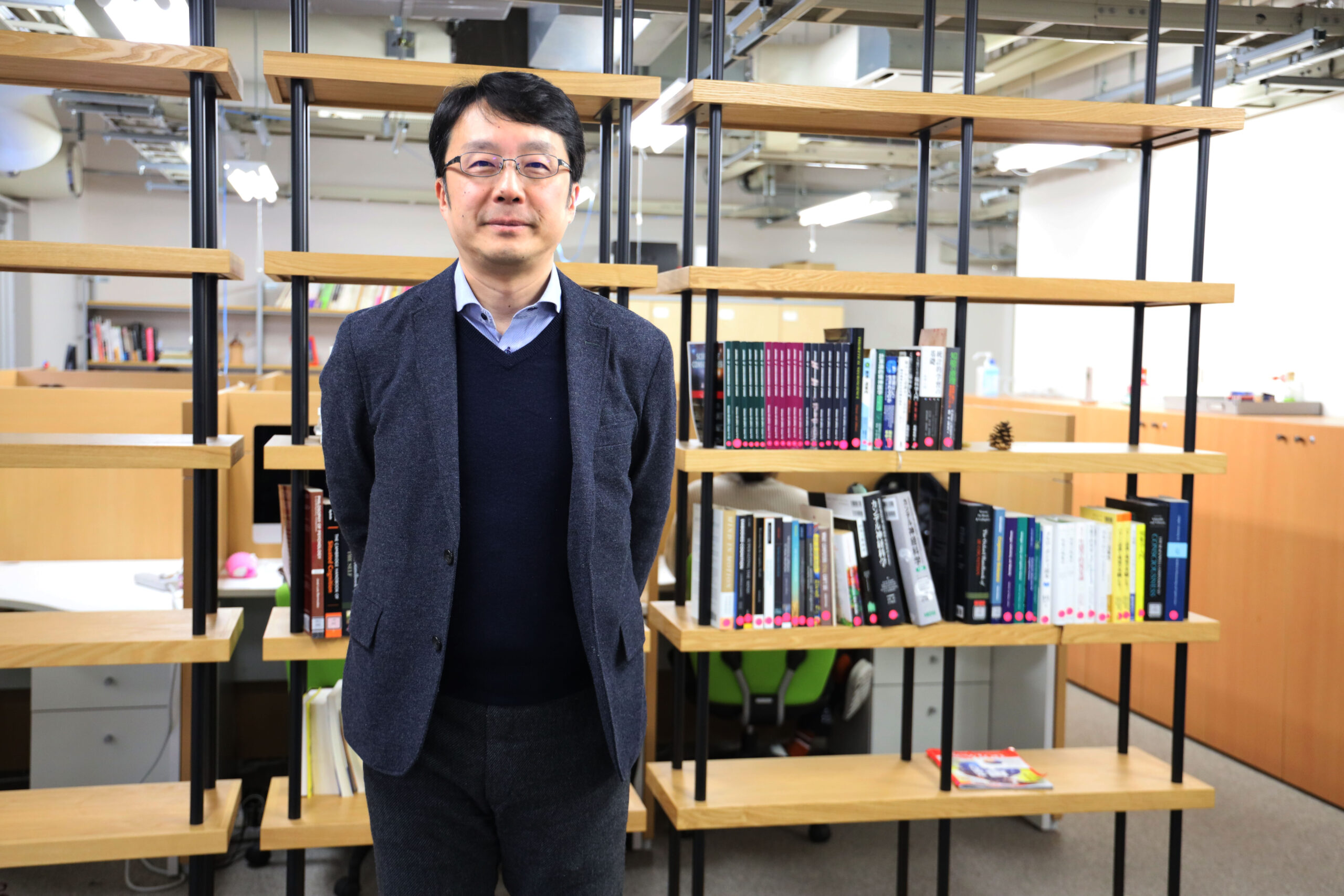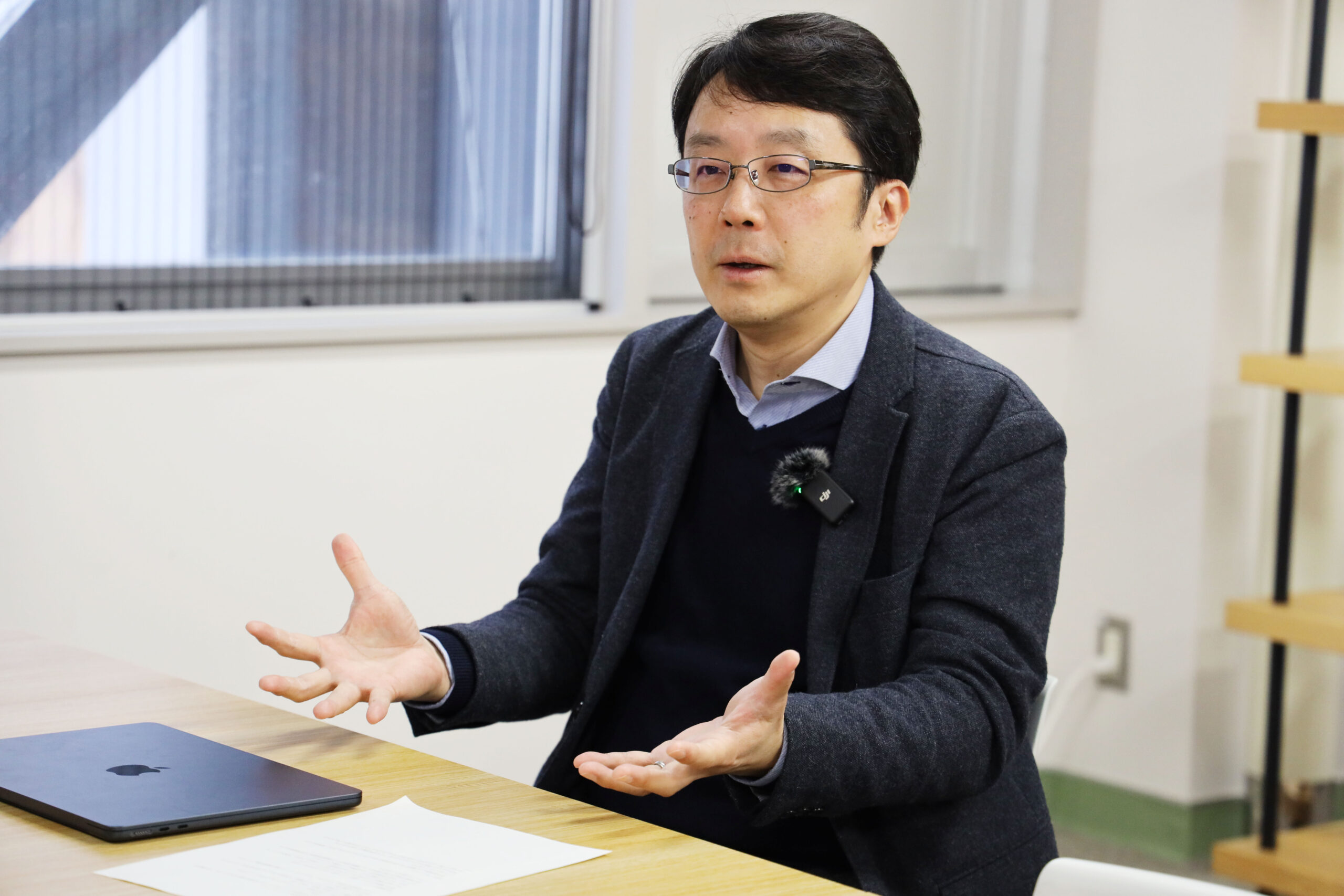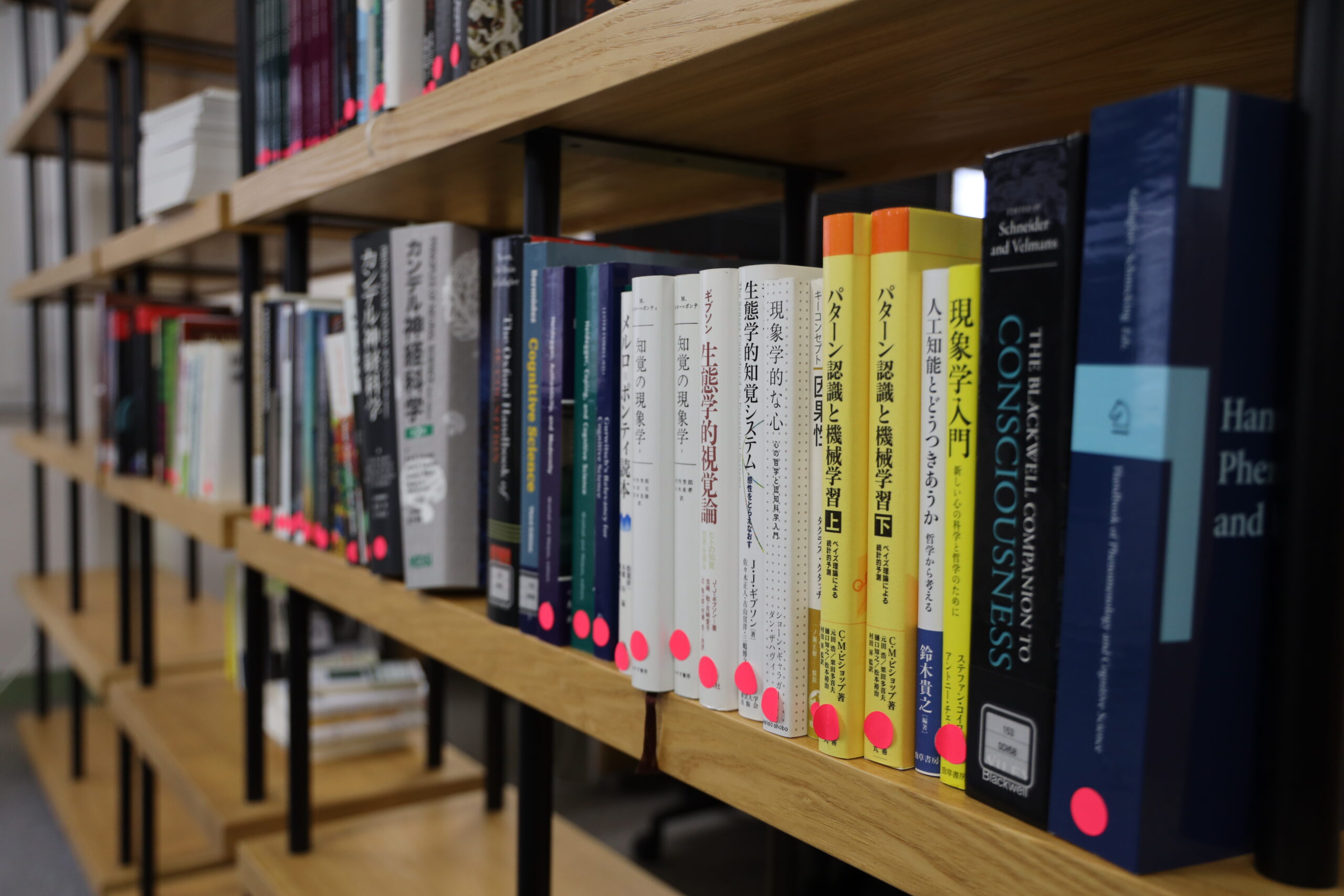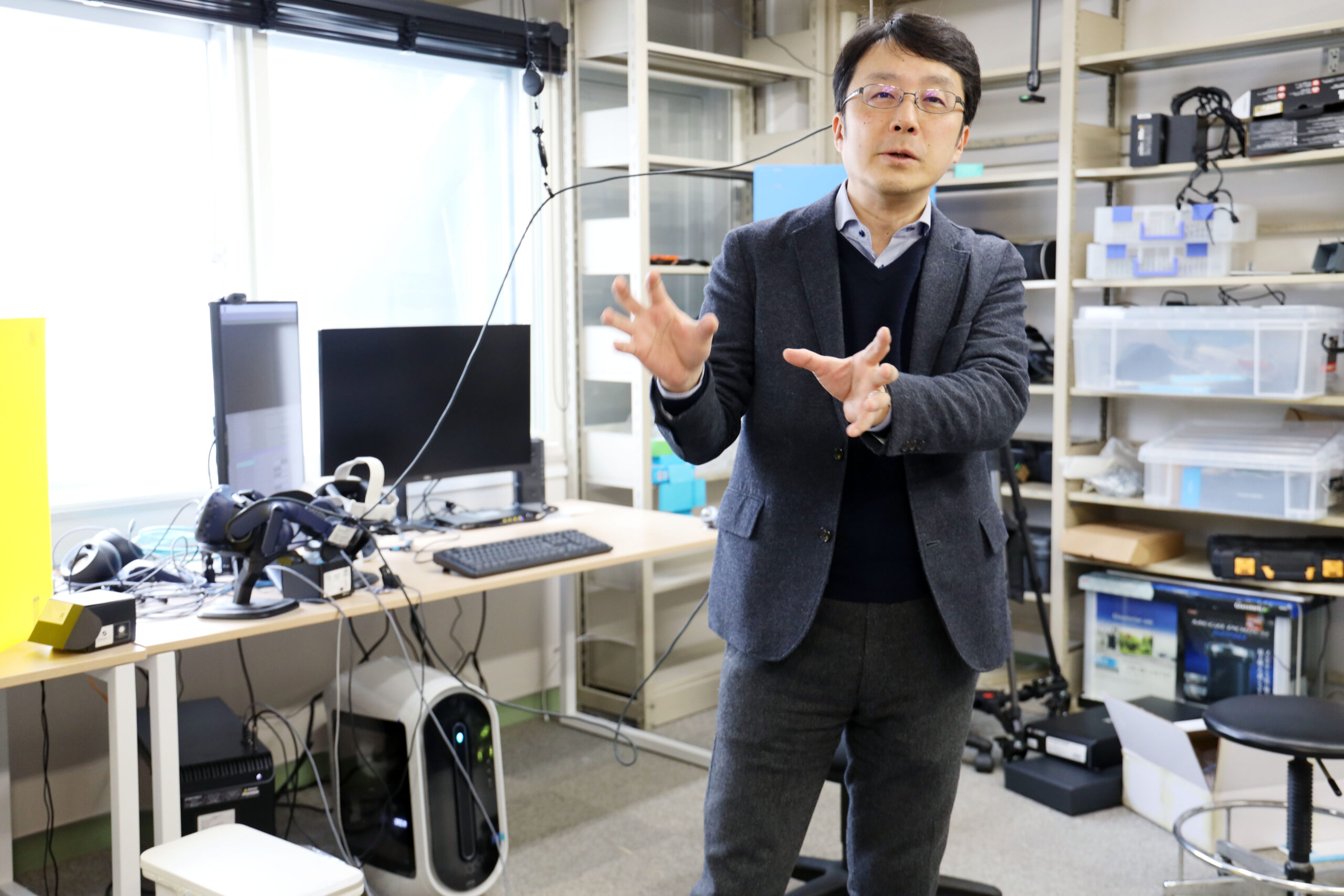Professor Shigeru Taguchi is the Director of the Hokkaido University Center for Human Nature, Artificial Intelligence, and Neuroscience (CHAIN). The Center is devoted to conduct new cutting-edge research by fusing different fields. Prof. Taguchi is taking on the challenge of combining philosophy, his own expertise, with newer disciplines: Artificial Intelligence (AI) and neuroscience. In this interview, Prof. Taguchi talks about how he came to study philosophy, his own research, as well as the background and prospects of CHAIN.

Professor Shigeru Taguchi (Faculty of Humanities and Human Sciences), Director of Hokkaido University Center for Human Nature, Artificial Intelligence, and Neuroscience (CHAIN)
Q. How did you become interested in your research field, that is, philosophy?
I have liked to think about many things since childhood. For example, I wondered about the whereabouts of the universe. When I asked my friends, nobody knew. When I asked my parents, they told me to stop thinking about such things all the time and urged me to study instead. No one could provide an answer. When I was in high school and wondered what I should study in university, I decided to study humanities because I was interested in human beings. Upon researching I came across "philosophy" as one of the humanities fields. I read a book about it and realized that my childhood wonder had actually always been philosophy.
I thought that philosophy was perfect because it would allow me to pursue my childhood interest in a more rigorous fashion, and that my wonders-that I had thought were useless-might be quite useful. I realized that the question of the universe's whereabouts is also a proper philosophical question. That is how I got interested in philosophy and decided to pursue it at university.
Q. Could you please tell us about your research at CHAIN?
One is a topic that I have been collaborating on with mathematician Professor Hayato Saigo for about 15 years. We are doing research on expressing the philosophical concepts of time and autonomy in living organisms using a branch of mathematics called "Category Theory" which uses arrows and objects to represent the mathematical world. Another topic is examining whether it is possible to think about "self" and "consciousness," which have always been my research themes, using this Category Theory.
I am also working together with neuroscientist Professor Masatoshi Yoshida from CHAIN on "enactivism" and using the enactivist approach. Enactivism is a concept in cognitive science that is based on the idea that we can only know the world through our actions. We are trying to learn whether it is possible to think about human consciousness, sociality, and communication with others by focusing on such bodily actions.
The collaborators and I, we are researchers in different fields, but I can explore areas by virtue of their brain powers that I would not be able to reach if I were on my own. It is very exciting to collaborate with people from different disciplines, as it is a fascinating experience to have two (or more) separate brains jointly working together.
Q. How was CHAIN, an integrated interdisciplinary center, established?
CHAIN was established in July 2019. The idea was originally conceived at the Faculty of Humanities and Human Sciences when we were discussing establishing a new educational program to study AI-human society relationships. The plan was to set up such a program to apply for the Ministry of Education, Culture, Sports, Science and Technology's graduate school reform.
The idea that knowing humans would lead to the development of AI, and conversely that AI could be used as a mirror to understand humans, took center stage. The younger faculty members got excited thinking that this would be a very interesting project. So, we decided to establish an academic center to ponder about humans from multiple perspectives and to create an educational program. CHAIN was born from this. I think that a facility like this is uncommon; where humanities and social sciences, AI, and brain science are studied on the same stratum.
Q. What do you mean by "using AI as a mirror to understand humans?"
For example, one of my favorite studies is on "Bored AI Agents" by ARAYA, a start-up company that develops AI algorithms and products in which AI agents explore a virtual setting. "Bored AI Agents" are able to explore the environment more efficiently and properly. AI agents that cannot experience "boredom" will just repeatedly go through the same behavior; whereas agents that can get bored will, at a certain point, say "I've already done this many times, I'm bored" and take other actions, resulting in more efficient exploration of the environment.
Boredom is often thought of as a negative trait that doesn't make much sense to humans, and sometimes we get criticized with comments like, 'you get bored easily and lose interest quickly.' But, in fact, the AI experiment allows us to speculate that such an ability may have played an important role in the history of human evolution. Perhaps it is because humans can experience boredom that they have been able to thoroughly explore their environment and survive. In this way, we can use the various unfoldings of AI as a mirror to learn more about humans.
This year, ARAYA and CHAIN jointly held a recurrent program for working people to learn about AI ethics in a comprehensive way.
Q. What are the advantages of interdisciplinary education of AI, brain science, and philosophy at CHAIN?
It is not enough to just deal with AI and IT to work in society. We also need people who can think up the potential problems that could arise from the AI-human interactions, otherwise AI cannot be applied to our social life. As AI becomes closer to humans and enters society, various conflicts will arise. In the field of AI ethics, philosophical thinking is inevitably needed to draw a line between what is ethical and what is not, ensuring that AI itself does not lead to unethical consequences. I believe that the interdisciplinary education at CHAIN can be applied for this purpose.
Q. What is your aspiration for CHAIN?
One of the things we are working on is to design new AIs by incorporating philosophical ideas into AI experiments. For instance, in the field of philosophy called "phenomenology", which I have been studying, there is the idea that the basic mode of experience of others is to understand others by superposing oneself and others.
Research has shown that if you give an AI a specific mechanism for superposing itself and others, it will be able to learn how to see the world from the eyes of others using only its learning data from its own viewpoint. This research gives us a clue to empirically elucidate what mechanisms enable us to understand others in ourselves in the absence of information from other people's brains, and why we naturally understand and share how the world is seen by others. This is research that could not have been achieved either by AI alone or by philosophy alone.
In this way, I believe that the fusion of the humanities and sciences can produce very new knowledge and methods that cannot be accomplished in one field alone. We are trying to cultivate students at CHAIN who are interested in society, human beings, as well as science and technology-those who have the ability to apply integrated and intersecting wisdom.
Original article in Japanese and photos by Yuka Saito
Interview by Misaki Nagashima (Student intern, at the time of interview)
Rearranged by Aprilia Agatha Gunawan









